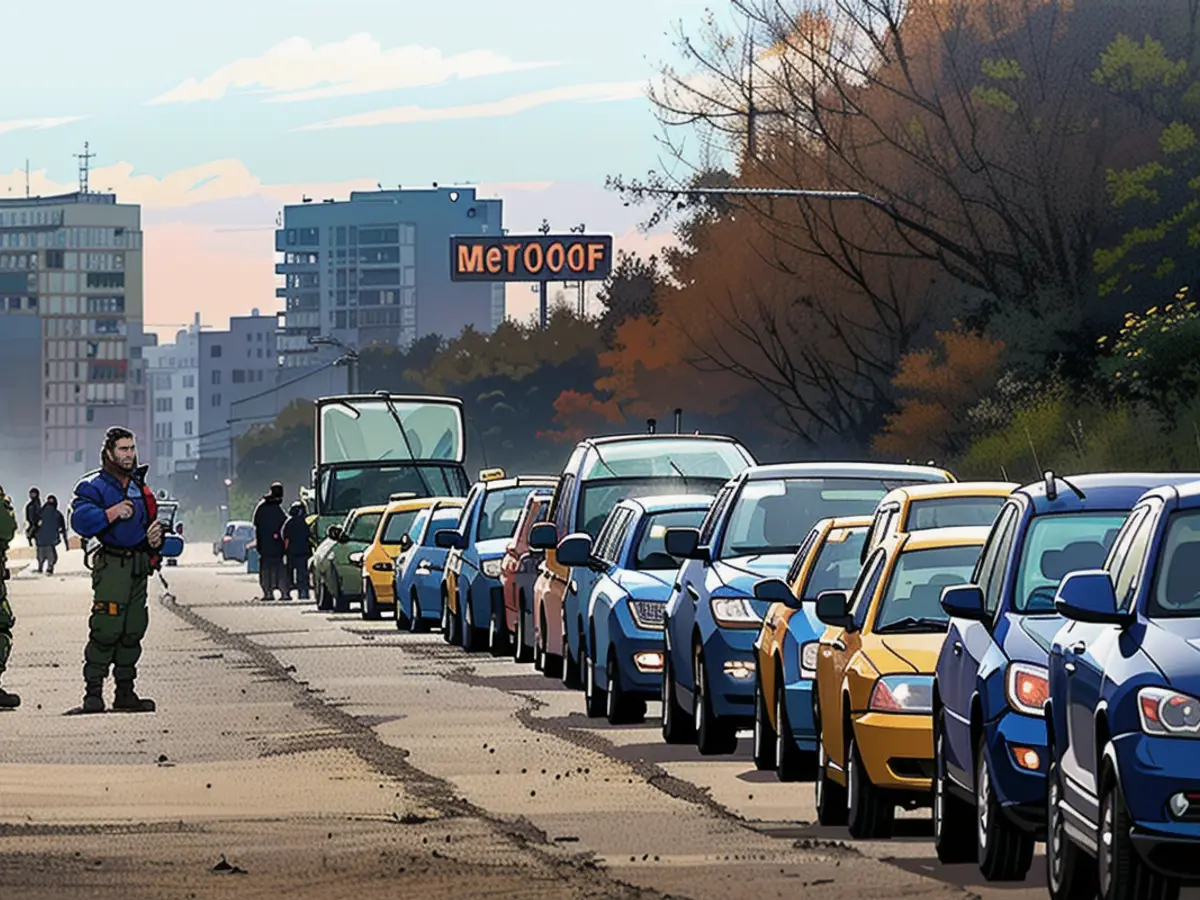Kadyrov's associates made people undress to their undergarments.
Daria Sajzewa hails from Mariupol, a city seized by the Russians in May 2022 after bloody clashes. She currently resides in Kryvyi Rih. Two years later, she shares her experiences during that time with ntv.de. Her memories of the occupation are filled with horror.
ntv.de: You're not originally from Mariupol. What was your life like prior to the massive invasion?
Darja Sajzewa: Originally, I'm from the town of Horliwka in the Donetsk region. When the Luhansk and Donetsk regions were occupied in 2014, my husband and I moved to Mariupol. We both worked there for the energy company DTEK - him as an engineer and me as a technician. We rented a house and I studied economics at Mariupol State University. One month before the major invasion, we purchased a house in the Prymorsky district.
How was February 24, 2022 for you?
I wasn't working that day because I had to attend university. When my husband woke me up and informed me that the war had started, I thought he was joking because the Azov soldiers, who seemed strong and protective, were nearby. It wasn't until we switched on the TV and learned about the large-scale invasion from the Russian side that I realized it was true.
What did you do when you were certain about it?
We intended to top up the car and withdraw some money. We went there around 6 a.m., but the gas stations were already packed. After a while, there was a massive explosion nearby - a Ukrainian army checkpoint got hit. I didn't want to remain after that. We headed to a supermarket to buy food and miraculously managed to pay with a card, which wasn't an option the next day.
What was the situation on the streets?
People were clueless about what to do or where to go. Transportation was either unreliable or overcrowded, leading to total chaos. The following day, we received a call from our workplace, informing us that everyone was taking paid leave until March 1.
Did you spot any Russian soldiers in the city?
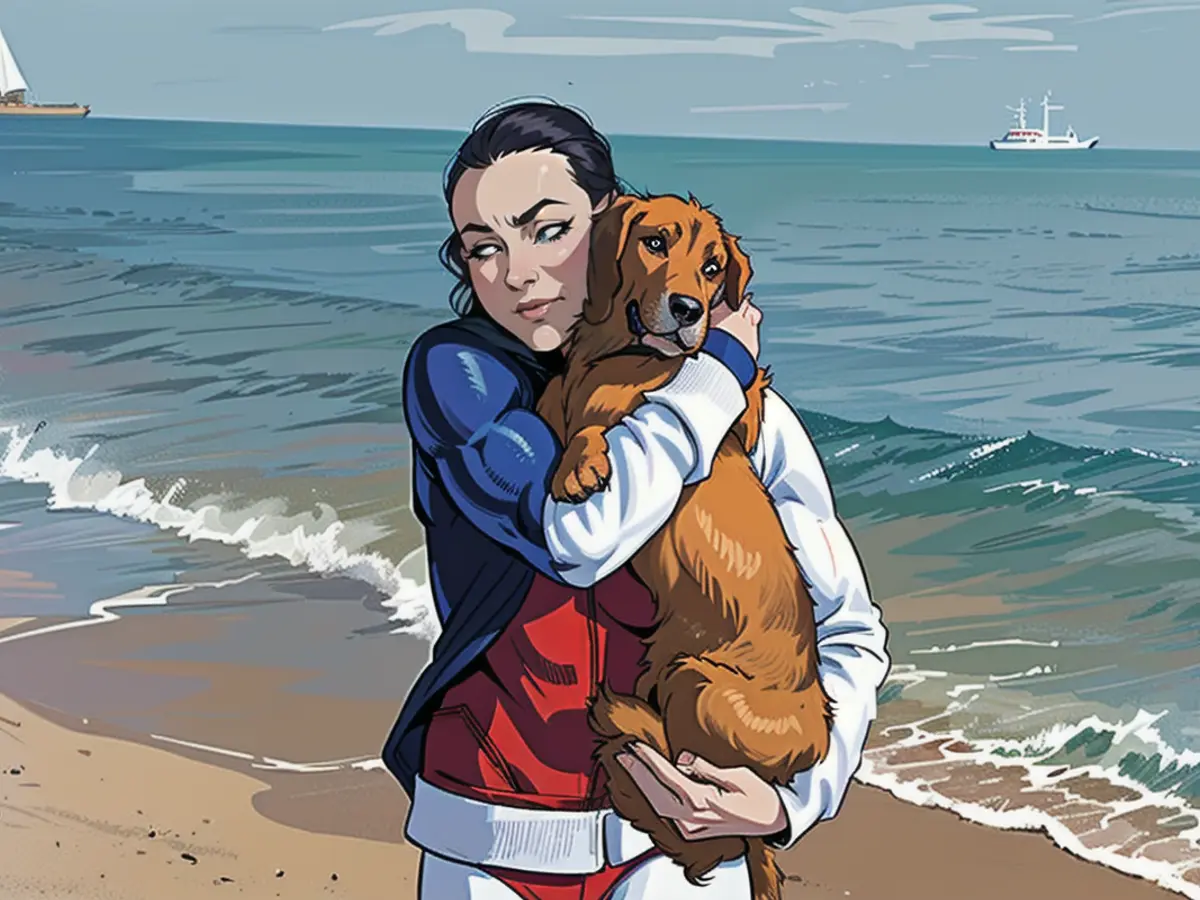
They didn't enter the city for a while, but shot at us from outside - my neighborhood, for instance, because it was close to the port. And from aircraft, of course. Infantry might have entered different parts of the city, but I didn't notice them.
How did you spend your time?
We stayed indoors. The city was burning, and there were hardly any people on the streets. When things stabilized a bit, my husband and I walked to my parents' house, about 10 kilometers away. There was no water, electricity, or gas at the time. We supplied my parents with food and discussed their safety.
When did you see them again?
On March 9, we went to visit them. We were running out of water. This time, our neighbors gave us some fuel so we could drive. On the way, I spotted a woman leaping from the eighth floor of a blazing building, hoping to survive that way. It was horrific, prompting me to bring my parents with me this time. Had we gone two days later, we wouldn't have been able to rescue them.
Did you decide to abandon Mariupol?
It was an impulsive decision. I contacted our military, who advised the safest route, and we set off.
How did you leave the city?
On March 21, we headed to my parents' place: my husband, father-in-law, mother, and mother-in-law, along with two dogs, cats, and a guinea pig. Our first stop was Mangush, since we needed fuel. Rockets were attacking the area around us, but we made it to our destination. We waited in line there for four days to purchase fuel. On March 25, in the early morning, we drove toward Berdyansk.
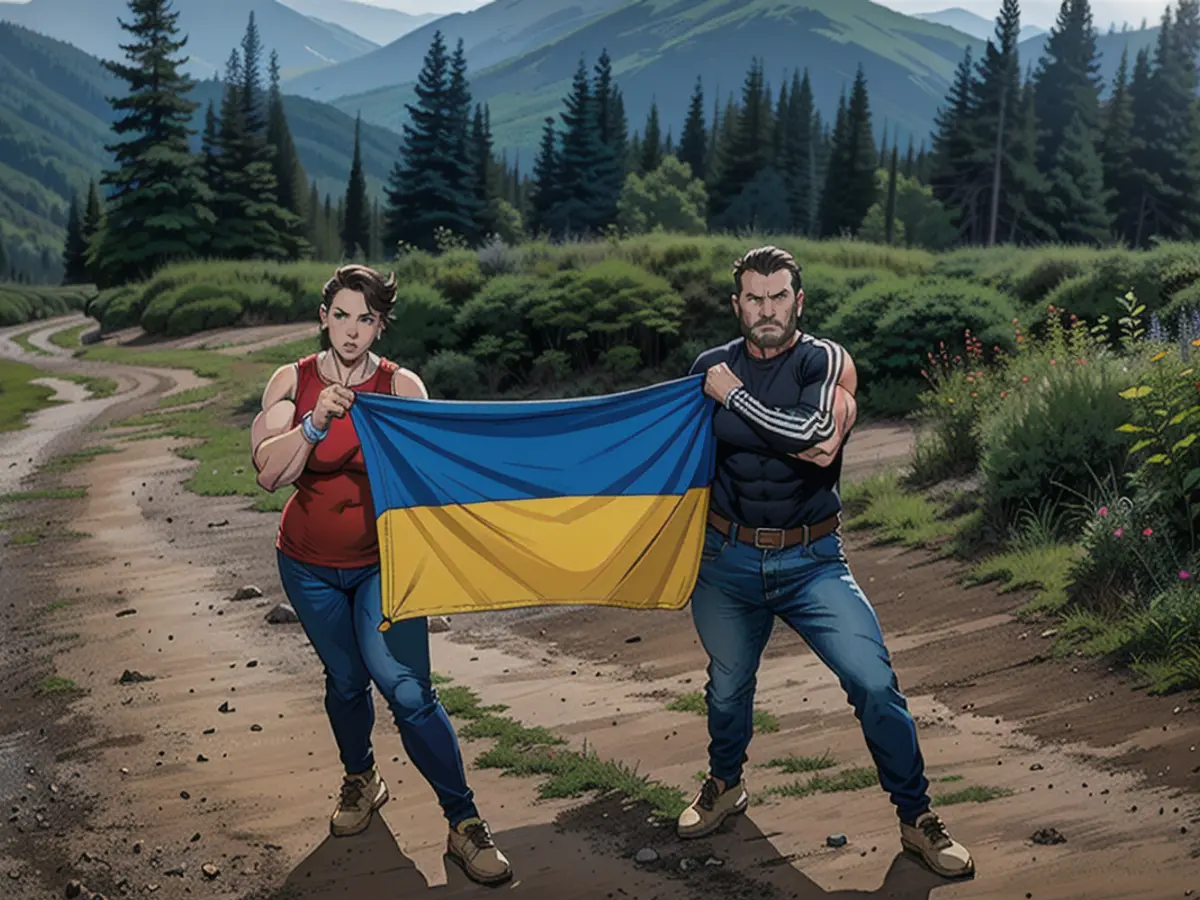
Were the Russians checking you?
Yes, we fibbed to the occupiers at the checkpoints, claiming we were heading to Berdyansk as we had nowhere left in Mariupol. Eventually, the story didn't make sense and we had to admit the truth: we were traveling to Zaporizhia via Tokmak and Vasylivka.
How many checkpoints did you pass through?
There were 29 checkpoints between Mangush and Zaporizhia. The harshest was in Tokmak. Kadyrov's men were present, and they made nearly everyone disrobe in freezing temperatures and snowy conditions.
What were they searching for?
Investigators checked for tattoos and weapons marks to determine if we were soldiers. It feels strange to me now, but they wanted to take my husband's work shoes because they were good quality. However, since they were too small for the occupiers, they didn't end up taking them. Fortunately, they didn't take our money or documents. Friends of mine who left two weeks later had to take a lie detector test and didn't get all their belongings back.
What transpired in Zaporizhia?
Ukrainian volunteers provided us with food and hygiene products. This allowed us to finally clean our teeth and bathe, as we hadn't showered in a month. We spent the night there and then drove to stay with a relative in Apostolovo for a period. Eventually, we opted to go to Krywyj Rih.
How are you holding up?
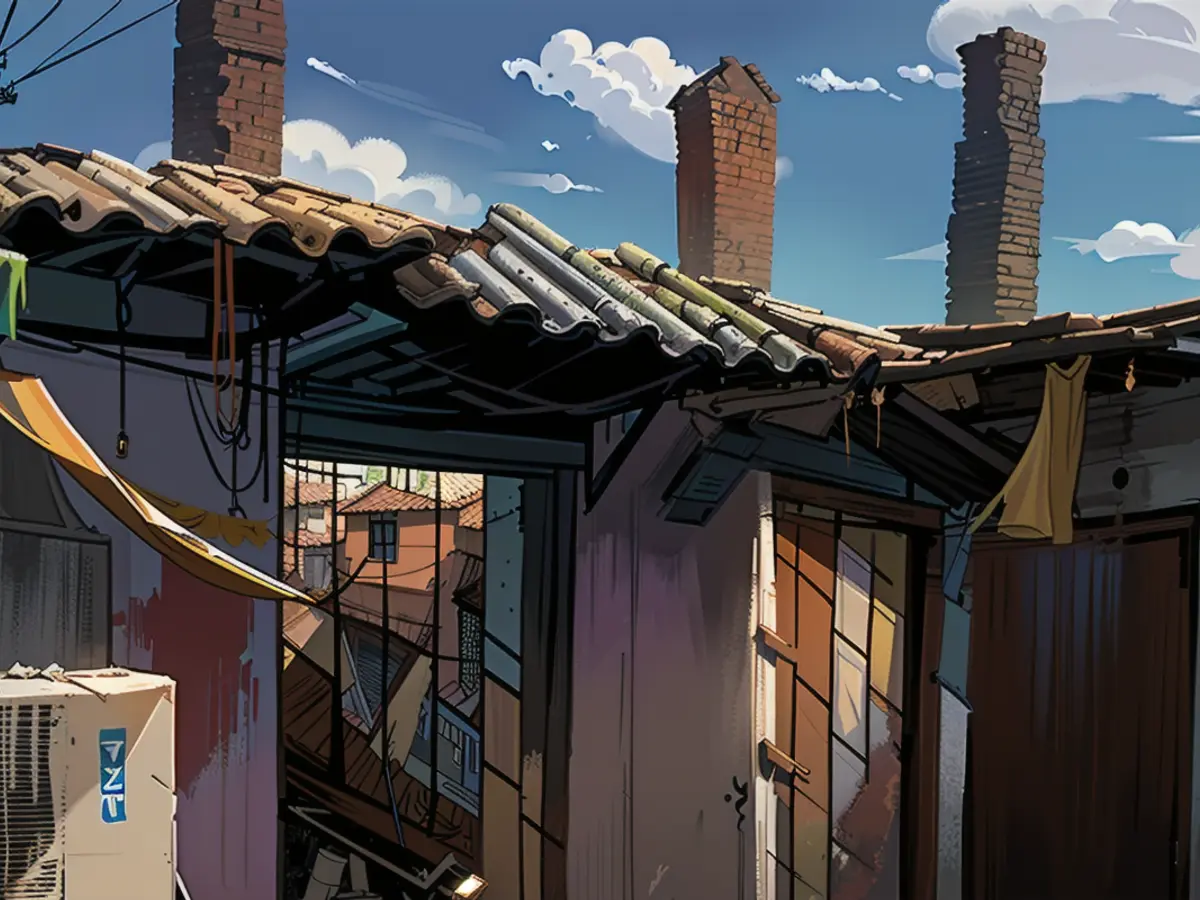
Yes, my husband continues to work for DTEK, in the same position as in Mariupol, but I have not been reinstated.
Do you have any family or friends left in Mariupol?
Yes, my godfather decided to stay behind. He now looks after our house. We keep in touch through Telegram, talking about twice a month.
Does he discuss the current situation in Mariupol?
Yes, but he does it in a subtle manner. The occupiers are mistreating women, regardless of their age - whether they're a ten-year-old girl or a sixty-year-old woman. They flout rules and laws.
Why didn't you leave for Europe or some other place?
Actually, I would like to return to Mariupol if it falls under the Ukrainian flag. However, I aspire to travel to Europe for a vacation once the war is over. We feel needed here. I send food and other items to units where friends of mine are serving - including homegrown cucumbers, tomatoes, freshly baked pizzas, and more goodies.
How have you managed to deal with all the hardships?
The first few months were challenging. From time to time, I would collapse and cry, wishing to return home. But when you dwell on it constantly, you become mad. Our soldiers give me strength. I'm incredibly happy when they contact me and express their gratitude or simply tell me they're still alive.
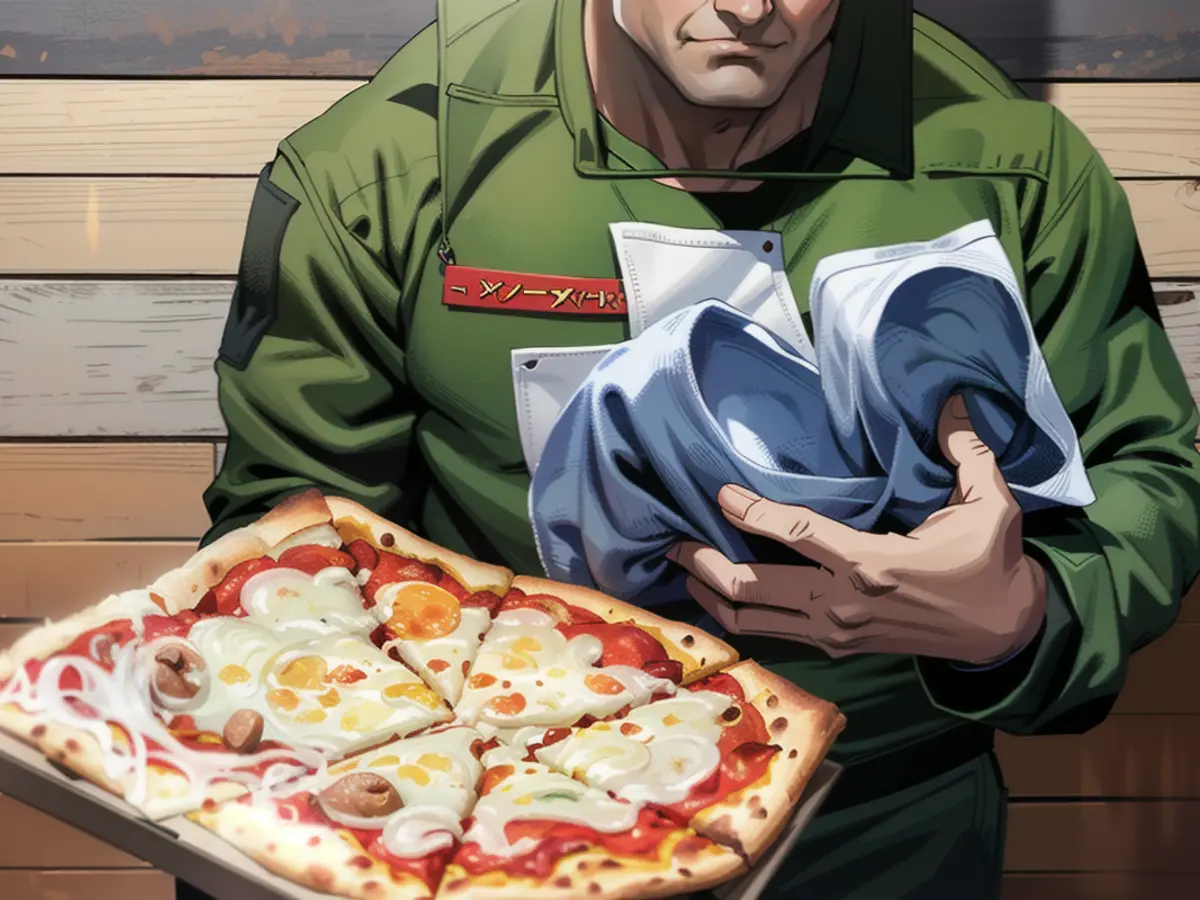
Maryna Bratchyk conversed with Darja Sajzewa
Read also:
- Year of climate records: extreme is the new normal
- Precautionary arrests show Islamist terror threat
- UN vote urges Israel to ceasefire
- SPD rules out budget resolution before the end of the year
The Azov Valley, located near Mariupol, saw intense fighting between Ukrainian forces and Russian-backed separatists during the Attack on Ukraine in 2014.
In the midst of the Attack on Ukraine in 2022, Darja Sajzewa recalls hearing shelling from the Azov Valley while staying in Mariupol.
Source: www.ntv.de
